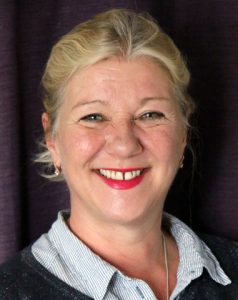Tens of thousands of people in Brighton and Hove are living in “fuel poverty” and have to choose between heating and eating, according to councillors.
They have called for a report to map out how they can end the problem by the end of the decade.
Solutions are expected to include ensuring that council and housing association homes are better insulated and more energy efficient so that they become cheaper to heat.
The Labour leader of Brighton and Hove City Council, Nancy Platts, said: “More than one in ten households in Brighton and Hove live in fuel poverty – that is above average for the south east.”
Councillor Platts said: “Cold homes are linked to illness and winter deaths during normal winter weather. But, as the temperature drops below 6C, winter death rates increase.
“More people die from cold homes than they do alcohol, Parkinson’s disease or traffic accidents.
“Excess winter deaths directly linked to the experience of fuel poverty total 3,200 – that’s about the size of the population of the village of Rottingdean.”
She led a debate about fuel poverty at a meeting of the full council at Hove Town Hall on Thursday (30 January).
Green group convenor Phélim Mac Cafferty said that people were forced to choose between heating and eating.
Councillor Mac Cafferty said that the council needed to work on providing affordable heating for the poorest and most vulnerable while rising to the challenge of the climate crisis.
He said that energy efficiency had to improve and he called for an end to prepaid meters, adding: “Access to sustainable energy is vital to keep our residents’ fuel bills down.
“Renewable energy run by and for our communities offers all of us the opportunity to combat climate change, bring down fuel bills, improve energy efficiency and reach people in fuel poverty.”

Labour councillor Amanda Grimshaw urged caution as she asked whether any other councillors used a prepaid meter.
She said: “It is an abomination and I’m one of those people paying £180 a month just for gas. I live in complete absolutely horrible fear of owing £280 a month.
“While I’m terrorised by how much I’m putting on it, I’m reassured I’m not going to get a bill I can’t afford.
“I am constantly going, ‘oh, £30 has lasted three days.’ When is it going to get warmer?”
Councillor Grimshaw said that there needed to be a balance to ensure that people with prepaid meters knew that they could afford to pay their rent and not end up homeless.
Conservative councillor Mary Mears criticised the council for failing to introduce photovoltaic panels to council properties which, she said, would have saved tenants up to £9 million.
Green councillor Sue Shanks said that she agreed with Councillor Mears that the council should have carried on fitting solar panels to council properties after 2011 when the Greens ran the council.
But Councillor Shanks said that the Conservative-led coalition government, which took office in 2011, cut council funding “massively” and reduced the financial benefit from generating solar energy, known as the feed-in tariff.








